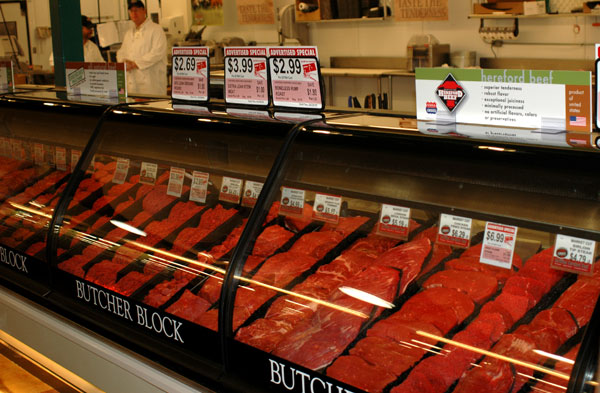Consumers Want To Know About Your Business
Today’s average consumeris three generations removed from the family farm. I believe they want to know the story of their food, but their perception of agriculture is largely built by media and pop culture.
August 29, 2012

As a former National Beef Ambassador, serving beef samples at events often revealed to me some of consumers’ top concerns about beef.
Will beef make me fat? Is this beef full of hormones and antibiotics? Do you force-feed cattle grains? Why do you keep them so cramped in feedlots?
The questions often held a negative connotation, likely gleaned from a negative media piece that depicted ranchers as modern-day villains.
Today’s average consumer is three generations removed from the family farm. I believe they want to know the story of their food, but their perception of agriculture is largely built by media and pop culture. That’s why it’s important that we address consumers’ questions about our industry.
I recently visited with Keith Underwood, South Dakota State University (SDSU) Extension meat specialist, to find out what consumers clamor to know about beef.
He says today’s consumer is looking for more transparency than previously. In fact, this is a lesson the industry had to learn the hard way earlier this year with the lean finely textured beef (LFTB) issue.
He says public outrage over the technology as it was sensationally presented in the media elevated consumers’ desire to know more about how their beef is produced.
“People were pretty upset to learn about LFTB; they felt the industry was hiding something. It wasn’t the intent of the beef industry to not let them know; in the past, most people typically didn’t want to know.”
Industry Resource Page: Lean Finely Textured Beef
Underwood says the bottom line for the industry is to be more proactive in explaining its practices. “In my opinion, the way to connect with our consumers is to be open and honest and show them where they can find information that is easily accessible and reliable,” he says.
One challenge, Underwood says, is that there is such a flood of information available today, thanks to the Internet, and especially blogs, that it can be hard for consumers to wade through it all. “We need to direct consumers to sources, such as Extension and university resources, where the information is based on sound science, not emotion,” Underwood says.
In addition, Underwood says producers must be prepared to address any other “yuck” factor issues that might not resonate well with consumers. In fact, he says he fields many questions from consumers regarding the ingredients in hotdogs and frankfurters, where ground beef comes from, the difference between organic vs. conventional-raised beef, the use of antibiotics and hormones in the industry, and the use of coloring and nitrates in processed meat products.
“Changing attitudes is sometimes very difficult to do. Repetition, being proactive, and providing sound science and information to explain our products and their value to the consumers is the way to educate. My job is to not tell the consumer what to buy, but to give them the information to make a sound decision,” he adds.
Beef Advocacy Tip: Masters Of Beef Advocacy Equips You Be Prepared
As consumers play a bigger role in influencing how their beef is produced, it will be increasingly important for producers to become familiar with and be able to explain modern beef technologies. Checkoff-funded programs such as the National Cattlemen’s Beef Association’s Masters of Beef Advocacy program help to develop and train spokespeople for the industry.
In addition, SDSU offers Beef 20/20, an educational program held on campus annually in January. It’s designed to educate cow-calf producers about what happens once their calves leave the ranch. Thus, they can better articulate to consumers how beef is produced, from pasture to plate.
The bottom line is that consumers want to know they can trust us as stewards of the land and animals, while providing a safe and wholesome product. It’s up to us to get on board and engage in conversations with our consumers.
Amanda Radke is a South Dakota rancher and Editor of BEEF Daily. Follow her daily posts at beefmagazine.com.
About the Author(s)
You May Also Like


.png?width=300&auto=webp&quality=80&disable=upscale)


